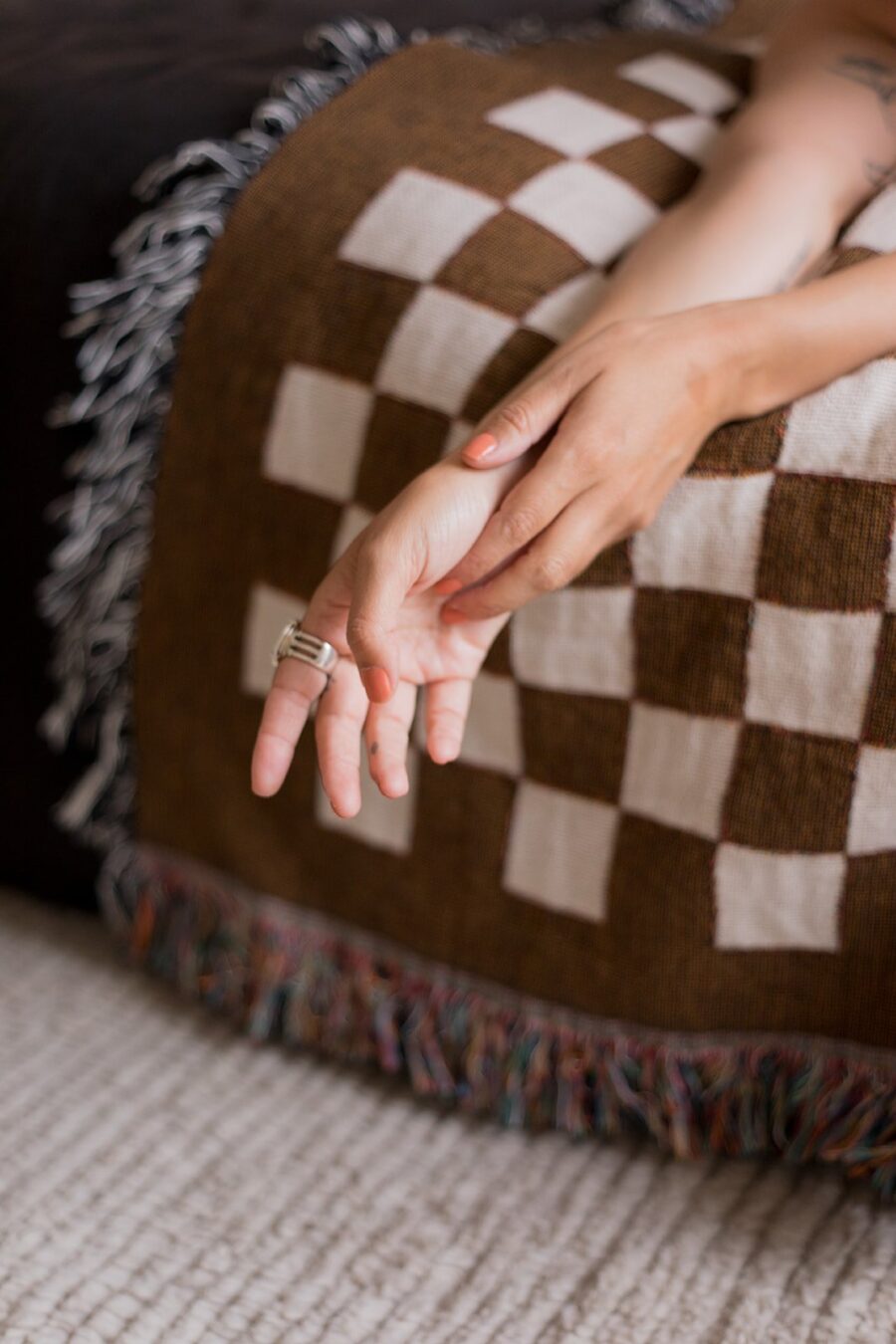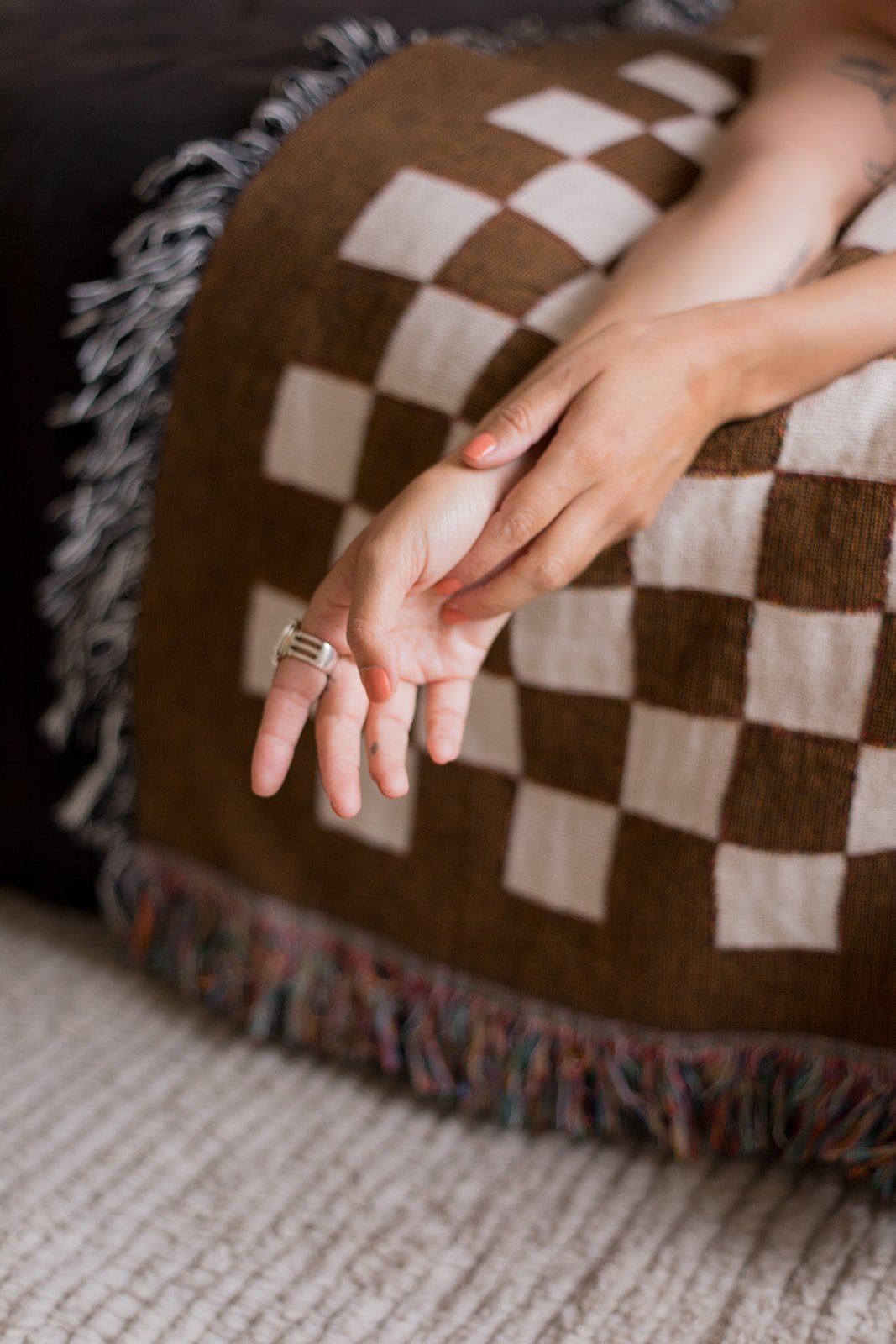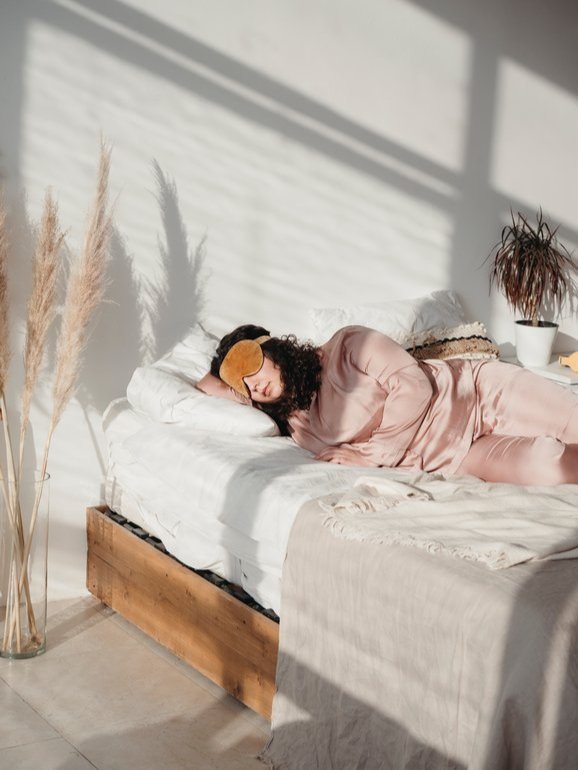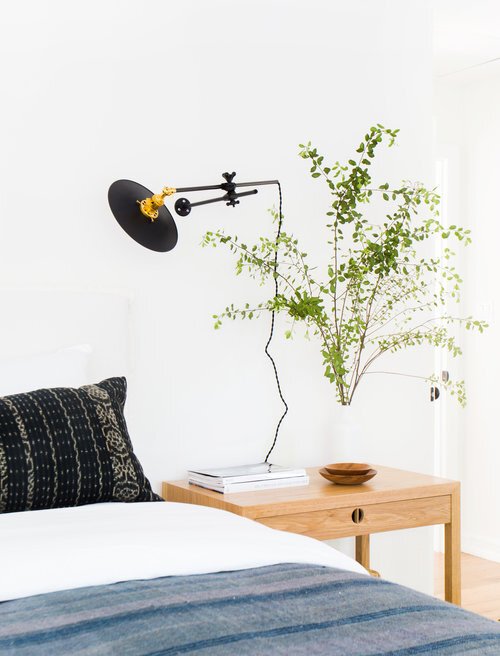
Are You A Revenge Bedtime Procrastinator? (Me Too)
One more round, I think.
It’s the same whether I’m playing video games by myself, playing a board game with friends, or at the brewery for date night. I just…don’t want to go to bed.
The past two years have taken my daily routines and wellness habits and thrown them into a Vitamix on high. And, at some point, my bedtime got blended up, too. Every once in a while it’s a modest 10 PM, while other nights, it’s later—so obscenely late that I don’t even want to say the time. Am I the picture of health? No. But am I trying? Also no. But I am enjoying myself and this rebellion against the pillow.
“We steal an hour (or more) for ourselves in an act of ‘vengeance’ against the things that seemed to steal our time during the day.”
I’m seeing this habit (or lack thereof) crop up in my social and online circles as well, being referred to as revenge bedtime procrastination. It’s a dramatic concept that’s been translated from a Chinese expression—bàofùxìng áoyè—meaning, simply, that we stay up later than we know we should, even when we’re tired. We steal an hour (or more) for ourselves after our kids or our partners are in bed in an act of “vengeance” against the things that seemed to steal our time during the day.
For some, especially those of us who work from home or have been out of work for a time, we avoid sleep to make up for a lack of structure in our days. For others, it’s a response to feeling unfulfilled during the daytime hours, so we attempt to find meaning right before bed. If we can prolong the day, we think, we can reign in the hours and re-establish ourselves as the captain of our own ships. We want control at any cost—even sometimes at the expense of our health.
Yet with each waking moment, the next day inevitably becomes more exhausting. Prioritizing sleep is essential, if and when it’s available to you, because more regular sleep patterns can lead to a better immune system, lower stress, and a clearer headspace. Not to mention sleep’s benefits to our mental health (particularly at reducing anxiety, something most of us have dabbled in these past two years).
So why am I putting off such an important self-care practice then?
“Putting off things we know to be good for ourselves may be connected with our self-regulation skills.”
There’s actually been research done on the subject. While procrastination is usually viewed through an academic and professional lens, researchers found that it was happening with health behaviors, too. Think about it—have you ever put off an appointment or a phone call to your doctor without a very good reason? Putting off things we know to be good for ourselves may be connected with our self-regulation skills, and as I read more about it, I realize how desperately the pandemic has challenged this practice. Our rhythms got funkier in 2020, to say the least, so it makes sense that we’re all dancing wildly to the beats of our own drums.
We may have started off our lockdowns with rigid schedules, but a 2013 study that explored this high level of self-regulation discovered that this consistency can wear down our self-control. As we resist impulses and desires regularly, the research showed, our brains become depleted and it becomes more difficult to resist temptations. So forcing myself to go to bed instead of doing something I enjoyed eventually became more difficult to do—and it’s why I’m here, avoiding telling you my bedtime last Saturday.
“So what’s the solution?” you ask me, as if I’ve mastered the five perfect steps to reclaiming my bedtime and thus, controlling my own destiny. (I have not.) But there are a few handy mindset shifts we can practice to help us get some sleep and still take care of our emotional needs.
“I ask myself confronting but necessary questions like, am I sacrificing more of tomorrow’s energy than I’d like to?”
Mindfulness, resilience, and self-compassion are all essential tools when you’re trying to make any changes for yourself. I’m trying to remain present by checking in with myself more frequently (and more honestly) about how I’m physically feeling, and what consequences I’m willing to accept. I examine the moment and ask myself confronting but necessary questions like, am I sacrificing more of tomorrow’s energy than I’d like to? Is this as restorative as I imagine it to be? Or, am I staying up late to avoid something difficult in my life?
There’s also plenty of room for failure; if we slip up on sleep and accidentally catch the sunrise, so be it. There is always tomorrow (or I suppose, since you stayed up til dawn, today). I find that keeping track of how I speak to myself about my perceived failures can be helpful when it comes to changing a difficult habit. Viewing my bedtime as a grade on my report card or as a measure of my worth as a person is getting tiresome. It is not a failure when I stay up late—it’s just a fact.
And then, there are just the other times when I wonder if my bedtime procrastination is actually telling me more about myself and the direction I want for my life. Perhaps I’m in a season where I’m finally enjoying myself, prioritizing activities I love, without the harsh questions or self-criticism of my youth.
“It is not a failure when I stay up late—it’s just a fact.”
To be honest, tonight I’ll probably stay up later than I mean to, and tomorrow night too. I don’t have children, my work hours are regular, and all in all I’m fortunate to be able to be a little flexible with my bedtime. Still, I could always use more sleep. For my fellow bedtime procrastinators, though, I want to share the question I’m ruminating on as I explore this habit:
What if, instead of keeping score against ourselves, we decided that our daily lives weren’t a contest to be won or lost?
If you want to change your bedtime habits and are ready to do so right this very second, I believe in you. But if you’re muddling through and still trying to sort it all out like I am, I also believe in you. We only get one round in this life, so let’s stop trying to force ourselves to get it exactly right. We probably won’t.
No matter where you’re at, or how late it is while you’re reading this, you’re doing just fine. All I can wish for you (and for myself) is a lot of self-compassion, a medium amount of caffeine, and maybe—perhaps—a little bit of sleep.
RELATED READING
Emily Torres is the Editorial Director at The Good Trade. Born and raised in Indiana, she studied Creative Writing and Business at Indiana University. You can usually find her in her colorful Los Angeles apartment journaling, caring for her rabbits, or gaming.





